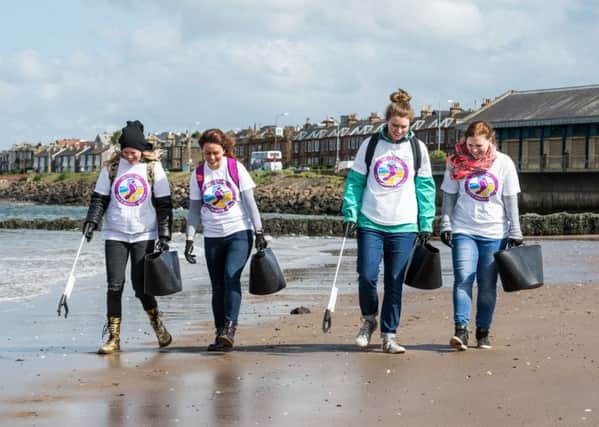George Thomson: We must shift focus to volunteers


FOR many of us, our volunteering has been defined by the requirements of the organisations with which we have been involved. People participate as a volunteer for altruistic reasons but most also want the experience to be meaningful. Often that desire is not fulfilled.
It doesn’t need to be this way.
We must move from the existing recruit and retain model of volunteering, where organisations dictate the tasks available to one that recognises an individuals’ needs, interests and passions. The days of seeing volunteers merely as a “commodity” have to end.
Advertisement
Hide AdAdvertisement
Hide AdEach year Scotland loses £8 billion of volunteer value and no one seems to raise an eyebrow about this wasted opportunity. This amount is the estimated value in wellbeing if our citizens were giving as little as two to three hours a week in volunteer time.
Volunteer Scotland has, as the result of establishing “My Volunteer Account”, 100,000 people who have registered an interest in giving their time, enthusiasm and passion by volunteering. Unfortunately, only 3,000 of that number have found volunteering opportunities. It is clear that there remains an appetite for volunteering which we are, at present unable to utilise.
Our outdated and wasteful approach to volunteering means that only one in four of the population are engaged as volunteers. The challenge for us all must be to change the current dominant mindset and recognise another world of discovery for volunteering in Scotland.
The work of Dr Harry Burns, former Scottish chief medical officer, amassed compelling evidence about the many deep-rooted socio-economic issues which lead to such gulfs in health and life expectancy between the richest and poorest sections of society. He concluded that progress is less about the straightforward funnelling of maximum public funds through traditional services, and more about communities becoming resilient, inter-connected, and learning how to make the most of their own distinct assets of people, skills, interests and networks, and thus improving the quality and diversity of the activity they are able to provide within their own boundaries.
This is an “asset-based” approach, and builds on strengths, not on addressing failure.
The commitment to “co-production” recognises and values the role of multiple groups and organisations in coming together as increasingly creative and holistic systems of collaboration. Collectively, these should help achieve better outcomes for the people of Scotland.
Making better use of assets is a key factor of the Circular Economy, the asset-based approach to volunteering is consistent with the principles of the Circular Economy.
Growing interest in and development of asset-based approaches is central to the national agenda of public service reform and the integration of health and social care in Scotland.
Advertisement
Hide AdAdvertisement
Hide AdAsset-based approaches are recognised as an integral part of community development work – they are concerned with bringing people and communities together to achieve positive change using their own knowledge, skills and lived experience around the issues they encounter in their own lives.
I would suggest that the key objectives of the Circular Economy mirror exactly the principles of a “people-centred” circular approach to volunteering that I advocate, namely:
• Recognising people as assets rather than as problems.
• Building on people’s existing skills and resources.
• Promoting reciprocity, mutual respect and building trust.
• Building strong and supportive social networks.
• Valuing working differently, facilitating rather than delivering.
The challenge that we face, organisations and policy-makers alike, is to respond to the needs that have been identified by volunteers themselves. “We’re listening” needs to be much more than a soundbite; we require to demonstrate that we are listening and responding to the needs of volunteers not the needs of organisations. «